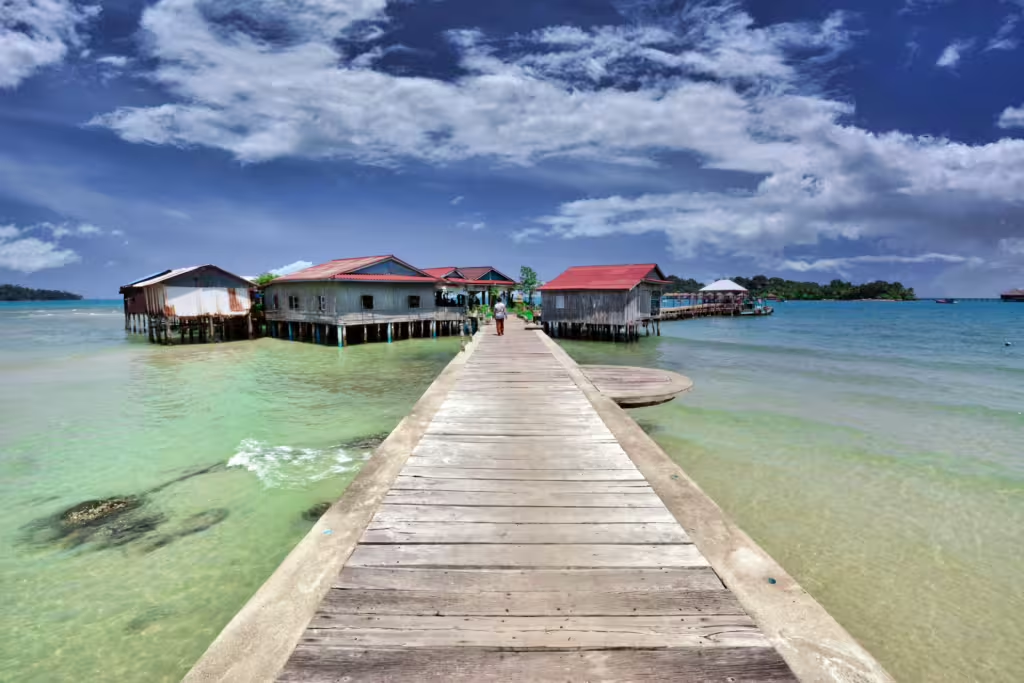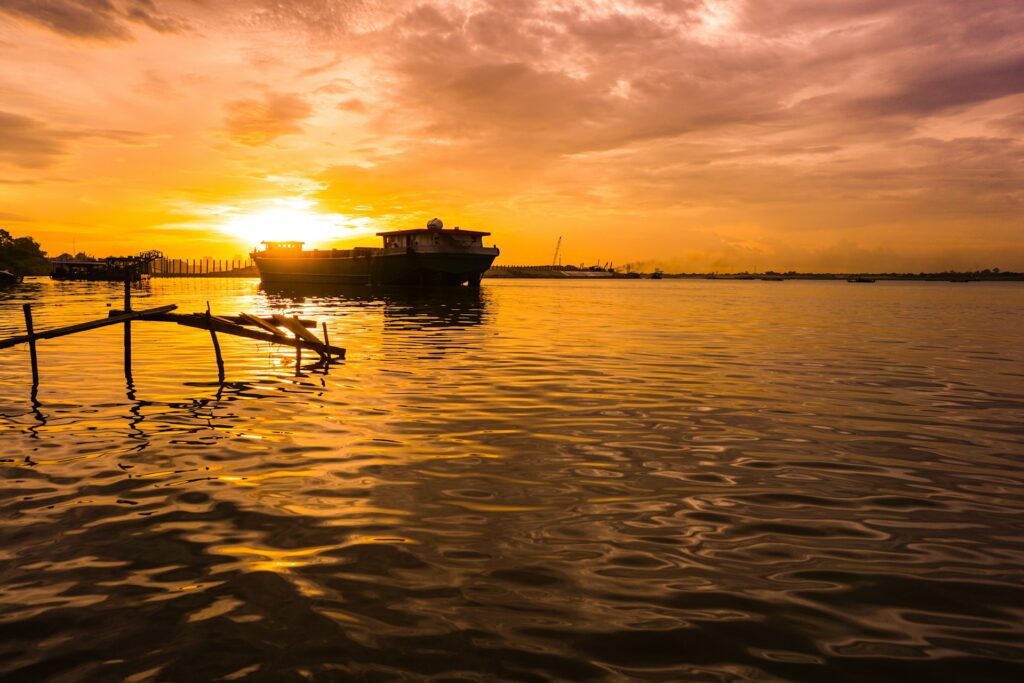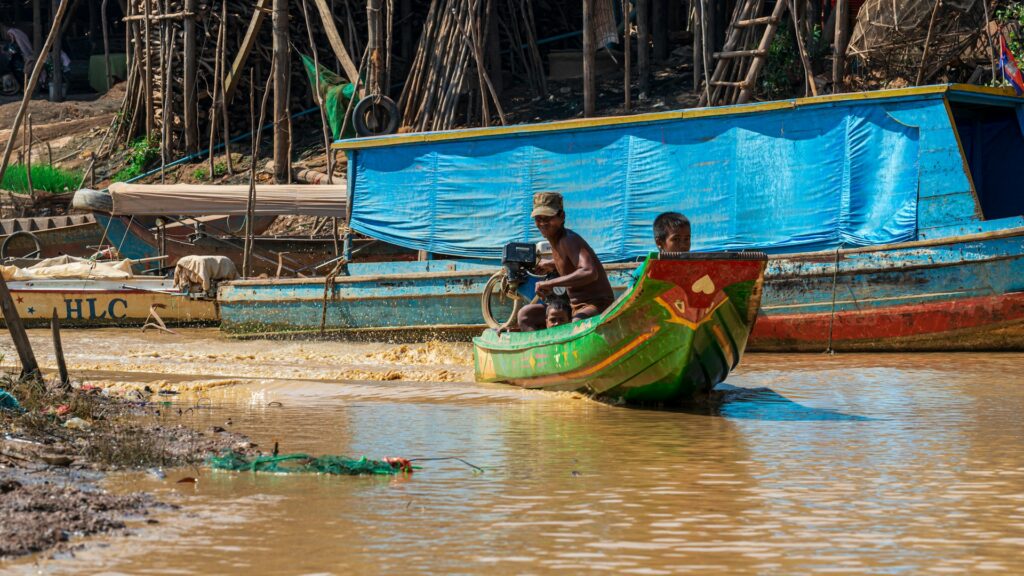
Water plays a vital role in Cambodian culture, deeply influencing the country’s traditions, daily life, and spiritual practices. From the mighty Mekong River to the tranquil Tonle Sap Lake, water sources are integral to the livelihood and rituals of Cambodian people. In this article, we explore the significance of lakes, rivers, and rituals in Cambodian culture and how they shape the nation’s identity.
The Mekong River: Lifeline of Cambodia

The Mekong River, one of the world’s longest rivers, is central to Cambodia’s geography and culture. Flowing through the heart of the country, it supports a diverse ecosystem and is crucial for agriculture, fishing, and transportation.
- Agriculture: The Mekong River’s annual flooding enriches the soil, making the surrounding regions some of the most fertile in Southeast Asia. This natural irrigation system supports rice farming, which is a staple of the Cambodian diet and economy.
- Fishing: The river is teeming with fish, providing a primary source of protein for many Cambodians. Fishing along the Mekong is not just an economic activity but also a cultural tradition passed down through generations.
- Festivals: The Mekong is central to several festivals, most notably the Bon Om Touk (Water Festival), which celebrates the end of the rainy season and the reversal of the Tonle Sap River’s flow.
Tonle Sap Lake: The Heart of Cambodia

Tonle Sap Lake, the largest freshwater lake in Southeast Asia, is another crucial water body in Cambodia. Its unique hydrological phenomenon, where the flow of water reverses twice a year, makes it an exceptional natural wonder.
- Biodiversity: The lake’s rich biodiversity includes numerous species of fish, birds, and other wildlife, making it a vital area for conservation and a hotspot for ecotourism.
- Floating Villages: Around Tonle Sap, many communities live in floating villages, adapting their lifestyle to the lake’s seasonal changes. These villages are a testament to the ingenuity and resilience of the Cambodian people.
- Economic Importance: The lake supports thousands of families through fishing and agriculture. During the dry season, the receding waters reveal fertile land for farming, while the wet season expands the lake, allowing for abundant fish catches.
Water and Cambodian Rituals
Water is also deeply embedded in Cambodian spiritual and religious practices. It is often seen as a purifying element and a symbol of life and renewal.
- Water Blessings: In Buddhist temples across Cambodia, monks perform water blessings to cleanse and protect individuals. This ritual involves sprinkling holy water, which is believed to bring good fortune and spiritual purification.
- Ceremonies and Festivals: Numerous Cambodian festivals feature water prominently. The Bon Om Touk (Water Festival) is one of the most important, marked by boat races on the Tonle Sap and Mekong rivers. This festival not only celebrates the natural cycle of the rivers but also honors the country’s rich maritime heritage.
- New Year Traditions: During Khmer New Year, water plays a crucial role in various ceremonies, including the washing of Buddha statues and the splashing of water on family members and friends as a symbol of cleansing and renewal.
Embracing the Cultural Importance of Water
Understanding the role of water in Cambodian culture provides a deeper appreciation of the country’s way of life. Lakes and rivers are not just physical landmarks; they are the lifeblood of communities and the foundation of cultural practices that have endured for centuries.
To truly experience the significance of water in Cambodian culture, visit the Mekong River and Tonle Sap Lake. Book your transportation through Camboticket.com for a simple easy experience. With a variety of travel options, including buses, ferries, and private taxis, Camboticket.com ensures you get to your destination.